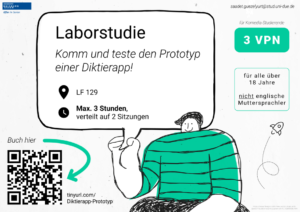Winter Semester 2024/25

Hackathons are time-bounded events (typically 1-3 days) with large participation, in which (small) groups carry out projects which they conceptualize, design, prototype, or implement. “Learning” is often cited as one reason to organize or participate in Hackathons. However, we also know that it is necessary to plan for learning to ensure learning takes place.
This Praxisproject is set to run in conjunction with 1-2 hackathons in December/January. In the project, we will continue the work done in last year’s iteration of the project on Python-based challenges for the hackathon participants framed in the style of an Arcade Game machine.
There the participants built a virtual arcade machine with games in different development phases for the hackathon participants to work on. This way we can have built-in challenges of different difficulty. This includes:
- a frame for the application: a virtual arcade machine
- different games in different development phases (for example Snake, Pong, Pinball)
In the hackathon event(s), we will mentor participants and we will use the event(s) to get feedback on our challenges to (potentially) improve them after. Beyond that, we can also use the event for further research.

n this project, we aim to design human-centered strategies to train AI Literacy and prepare for living with AI.
In particular, we will work in groups to design various learning activities for practicing AI Literacy.
These activities will be part of a toolbox that will be available as an online repository.
For the praxisproject, we will follow a mini-hackathon series format.

This project aims to explore the design, use and impact of Intelligent Tutoring Systems for programming.
In particular, we aim to:
- We will be using CTAT – the Cognitive Tutor Authoring Tools – that support the creation of flexible tutors
- We will look at the different levels of feedback and how to give appropriate feedback for a variety of programming tasks
- Eventually, we will combine this and pass our feedback to the intelligent tutors
For this project, we will work in groups of 4 students on a predefined topic (each group will be assigned a different topic). During the first weeks, we will provide an overview of the project, its goals, and related theoretical and practical concepts. Then, the groups will work towards three milestones:
- An initial presentation of their ideas, strategies and workplans to address the project’s topic
- A mid-term presentation of the work-progress up to that point
- A final presentation of the finished project and a written project report in the form of a scientific article.

In this seminar, we will explore the space between Data Science and Education! In particular, we will have an overview of what data science in education can look like and why education as a data science as an application field is not as straightforward as it may sound!
We will discuss the data cycle for transforming data to useful information, we will try out data mining approaches and we will discuss and contextualize our findings.
Finally, we will explore the state-of-the-art research in Educational Data Mining aiming to draw new and exciting directions!



